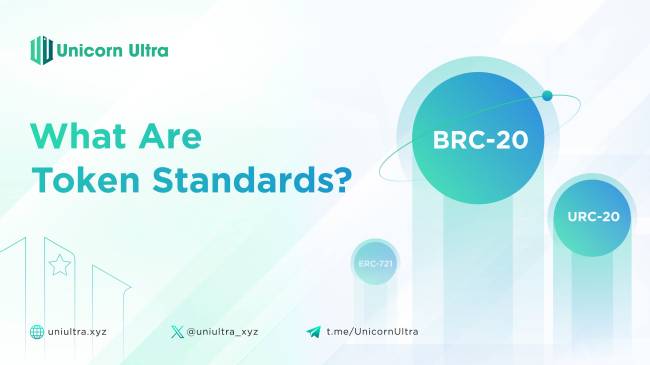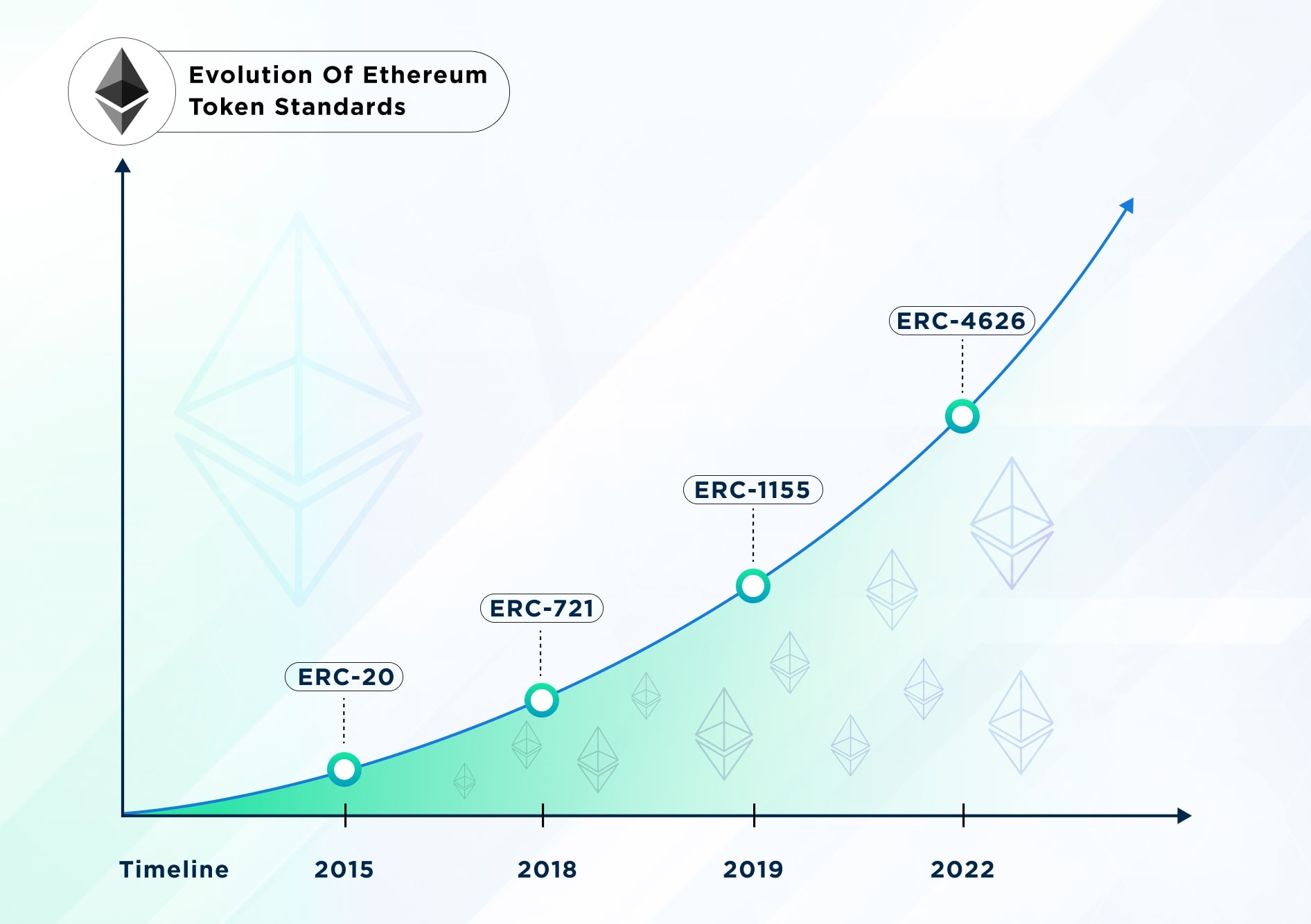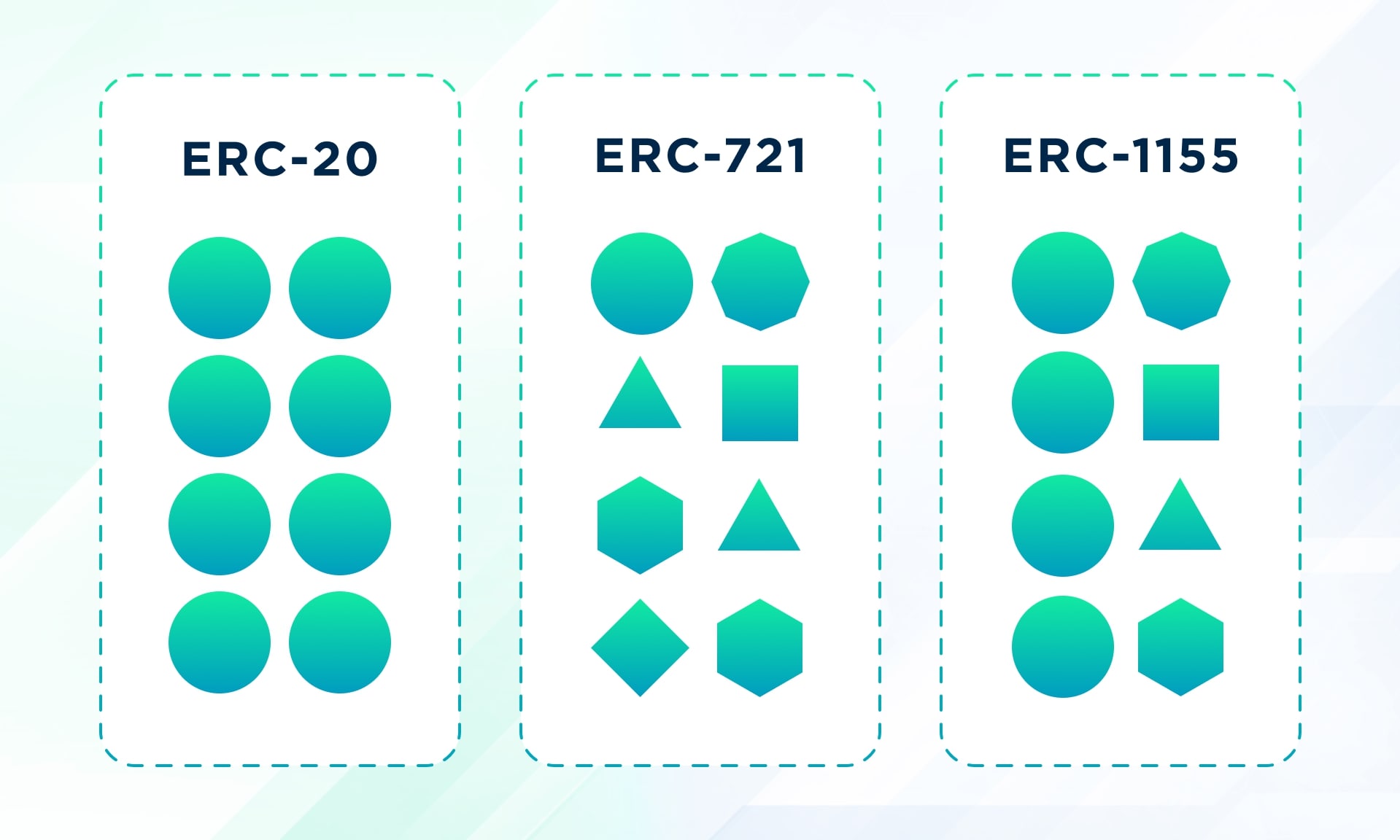
This article aims to unpack the concept of token standards, shedding light on their critical role and exploring the most prevalent standards in the industry. From Ethereum's widely adopted ERC-20 and ERC-721 to emerging standards on other blockchains, we will navigate through the intricacies of these protocols and their impact on the digital asset world.
What are Tokens in crypto?
Tokens in the blockchain realm are digital assets or units of value that reside on a particular blockchain. They serve various purposes, ranging from representing a stake in a project (similar to shares in a company) to embodying ownership rights (such as digital collectibles or access rights in applications).
The versatility of tokens has led to their widespread use in numerous blockchain applications, including but not limited to financial services, gaming, and digital art, offering a flexible medium for a multitude of digital transactions and interactions.
What are Token Standards?
Token standards are a set of rules and technical specifications that define how tokens behave on a particular blockchain. These standards ensure that tokens adhere to a specific format, making them interoperable with various applications and services within the ecosystem, such as wallets and exchanges. This standardization is crucial for the seamless exchange and utilization of tokens across different platforms and applications.
The evolution of token standards mirrors the maturation of the blockchain ecosystem itself. Initially, token standards were simple, focusing on basic functionalities like token creation and transfer. However, as the blockchain space evolved, so did the standards, incorporating complex features like multi-token transactions and improved security protocols. The future of token standards is promising, with continuous advancements in blockchain technology driving the development of more sophisticated standards. These future standards are expected to support a wider range of functionalities, including cross-chain interoperability and more intricate smart contract interactions.

The diversity of Token Standards
Ethereum, as a frontrunner in the blockchain space, has pioneered the development of token standards. The most famous among these is the ERC-20 standard, which laid the groundwork for creating fungible tokens – tokens that are identical and interchangeable with each other. ERC-20 tokens have been instrumental in the ICO boom, allowing for the easy creation of new cryptocurrencies.
Another critical Ethereum standard is ERC-721, the backbone of Non-Fungible Tokens (NFTs). Unlike ERC-20 tokens, each ERC-721 token is unique and cannot be interchanged with another, making them perfect for representing ownership of unique digital items like art or collectibles.
Other Ethereum standards like ERC-777, ERC-1155, ERC-4626,... have also emerged, offering more flexibility and functionality.

Other blockchains have developed their token standards to facilitate the creation and management of tokens within their ecosystems. Binance Smart Chain features BEP-20 and BEP-721 standards, similar in function to Ethereum's ERC-20 and ERC-721 but optimized for Binance's architecture. Polkadot, Cosmos, and other newer blockchains have also introduced unique token standards, enriching the diversity and capabilities of the crypto world.
The impact of Token Standards
The impact of token standards on the cryptocurrency market and its related ecosystems is substantial and multifaceted. Primarily, these standards have been the driving force behind the explosive growth and diversification of the crypto market, particularly evident in the rise of ICOs (Initial Coin Offerings) and the subsequent boom in various token-based projects. They've enabled a standardized approach to creating and managing digital assets, making it easier for startups and established companies alike to launch new tokens.
In the realm of Decentralized Finance (DeFi), token standards have played a foundational role. By providing a uniform protocol for token interactions, these standards have allowed for the seamless integration of various financial services, such as lending, borrowing, and yield farming. This has not only accelerated innovation in financial services but also democratized access to them, paving the way for a more inclusive financial ecosystem.
The limitations of Token Standards
The primary limitation of token standards in the cryptocurrency industry is their lack of interoperability. Tokens created using different standards typically cannot interact with each other due to the distinct rules and protocols of each blockchain. This limitation leads to several challenges:
- Interoperability Issues: Tokens are generally confined to their native blockchain platforms, making cross-chain interactions difficult. For instance, an Ethereum-based ERC-20 token cannot operate natively on the Bitcoin blockchain.
- Exchange Limitations: The inability to directly exchange tokens across different blockchains complicates trading and liquidity management. Users often have to rely on cryptocurrency exchanges or specialized bridging mechanisms for transactions involving different types of tokens.
- User Experience Challenges: Holding and using multiple types of digital assets becomes cumbersome due to these interoperability issues. Users cannot easily leverage assets across various blockchain applications, leading to increased costs and complexity.
The future of Token Standards
Looking ahead, the future of token standards is intrinsically linked to the evolution of blockchain technology itself. As we step into an era of more advanced blockchain capabilities, token standards are expected to become more complex, supporting a wider range of functionalities and use cases. This could include standards for cross-chain interoperability, enabling tokens to move seamlessly between different blockchains, or more intricate smart contract functionalities that could unlock new applications in various industries.
The role of community and governance in shaping these future standards cannot be overstated. Blockchain technology thrives on community involvement and consensus, and the development of token standards will continue to depend on the active participation and agreement of a global community of developers, users, and stakeholders. This collaborative approach will be crucial in addressing the challenges of scalability, security, and regulatory compliance.
Conclusion
Token standards, serving as the technical backbone of the cryptocurrency world, have proven to be much more than mere sets of rules for digital assets. They are the pivotal engines driving innovation, usability, and the integration of diverse functionalities within the cryptocurrency space. As we have explored, these standards are instrumental in defining how tokens operate, ensuring interoperability within ecosystems, and facilitating a myriad of applications, from ICOs to DeFi.
The future of token standards is closely tied to the progression of blockchain technology, promising more sophisticated functionalities and wider applications, including cross-chain interoperability and advanced smart contract capabilities. As we move forward, the role of these standards will become increasingly significant in shaping a more integrated, efficient, and user-friendly digital asset ecosystem.
The ongoing development, innovation, and collaboration in the field of token standards will be critical in driving the growth and mainstream adoption of blockchain technology, making it an exciting area to watch in the years to come.



.png)


